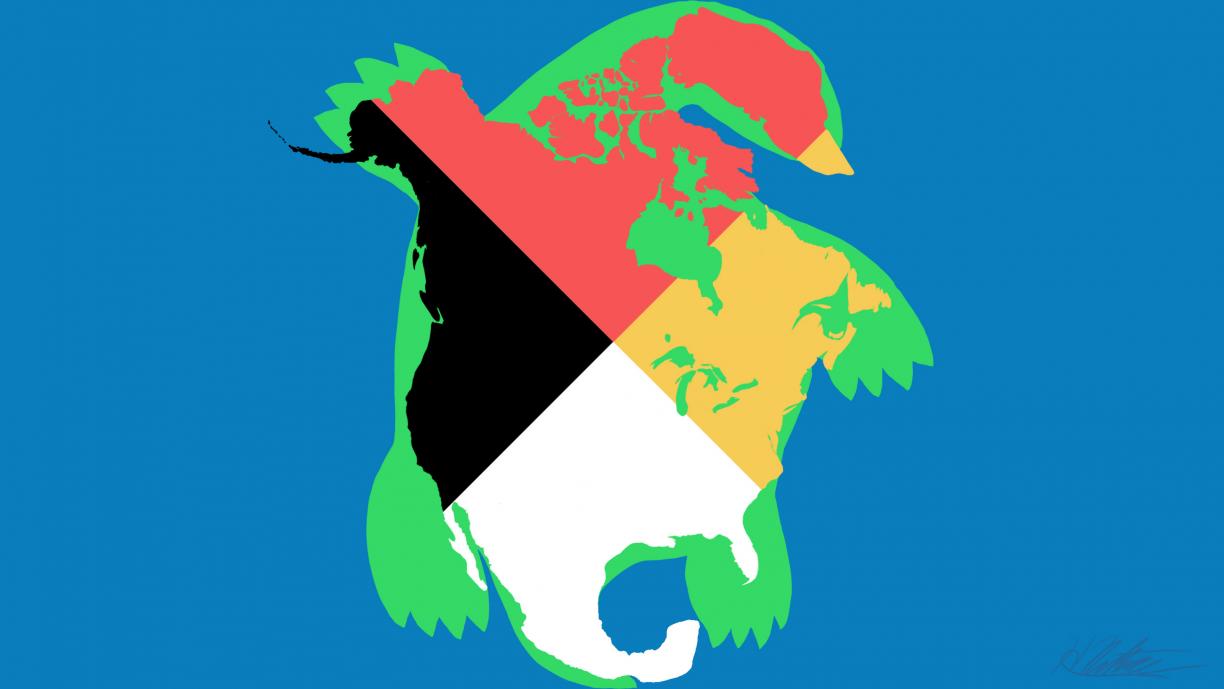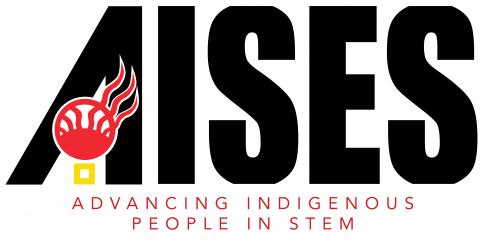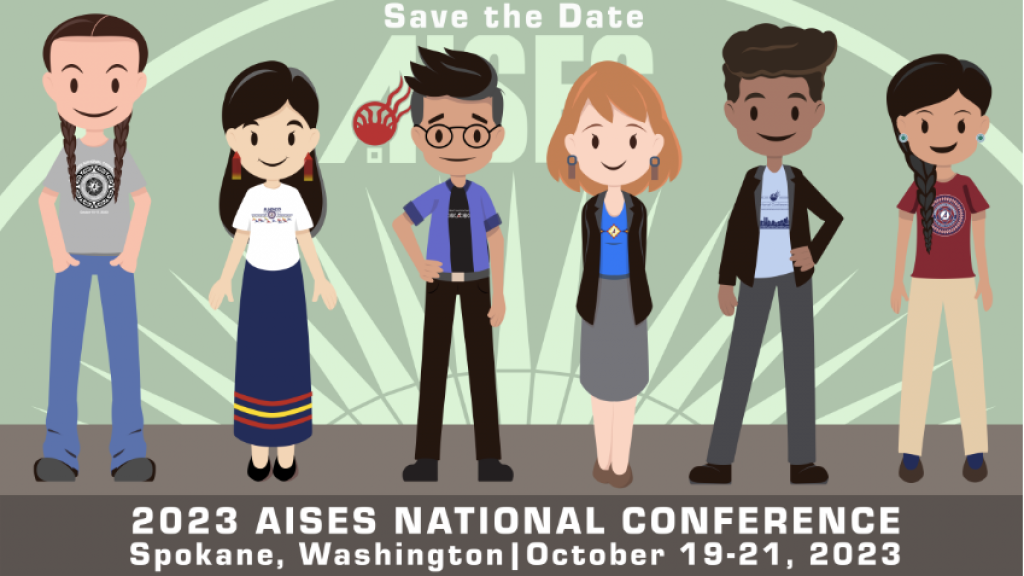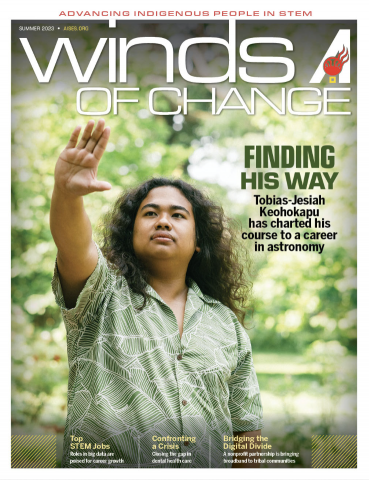
To celebrate Indigenous People's Day this year here on *Turtle Island, I wanted to give a shout out to the American Indian Science & Engineering Society (AISES).
Based in Albuquerque, New Mexico, they are a membership organization of current and future Native tech industry leaders which is "focused on substantially increasing the representation of Indigenous peoples of North America and the Pacific Islands in science, technology, engineering, and math (STEM) studies and careers."
Table of Contents
So in case you weren't already already familiar with AISES, today's article will cover:
- what issues the group seeks to address as a community;
- some of the programs they operate, including an annual conference;
- ways that companies and others can get involved.
Background
According to the 2020 census, 40% of the 18-24 year-old overall population was enrolled in college. That number declined to just 22% when looking at the country's Native American population.
What's more, Code.org conducted a Computer Science Access Report in 2022 which found that Native American high school students were significantly more likely NOT to attend a school that offers "foundational computer science" education.
Disparities such as this are those which AISES works to overcome through various programs, events, and initiatives.
Founded in the late 1970's by Indigenous engineering professionals in the US southwest, it was the first minority group to become a member of the American Association of Engineering Societies (AAES). The organization has since grown to include Native Hawaiians and First Nations people of Canada, as well.
The leadership of includes not just a Board of Directors, elected by the membership, but also a Council of Elders, which "represents an integral aspect of the AISES philosophy of passing on knowledge to the next generation."

Today the organization is headed up by Sarah EchoHawk, Pawnee, who's been at the helm since 2013.
Organizing & Educating
National & regional conferences
For 45 years AISES has organized a big national conference every year. It's always held in different states to make attendance more feasible for those across the country throughout the years. For 2023 the event is in Spokane, Washington, from October 19-23.
More than just a typical industry gathering, the AISES National Conference additionally serves as the "largest college and career fair in Indian Country with many companies also hosting hiring events by conducting onsite interviews."

While it's already sold out, you can learn more about the event here.
Besides the national one, various regional conferences are also held across North America. Speakers and mentors "share their expertise in areas like environmental science, engineering, or on crossovers between ecological knowledge and western science."
A wide-reaching organizational structure is crucial in working across a huge geographic area, often in rural areas. These smaller conferences allow attendees to learn and network in their home regions, without having to necessarily travel to the annually-held national event.
Student-run chapters
AISES is organized in such a way that both students at different stages in their education can come together and form their own communities at a local scale.
High schools, tribal colleges and universities (TCU's), and other educational institutions all serve as venues for student-led chapters and affiliates of AISES. These create spaces for students to learn, connect, and support each other together with the help of the overall organization.
I know from personal experience that no one succeeds completely on their own, and a ready-made network of mentors and resources can make a huge difference when starting out in one's career.
Winds of Change magazine
In an organization with an over 40-year history, you need to document the history.
AISES does so with its Winds of Change periodical, which is published 5 times per year in both digital and print editions. It calls itself, "the premier nationally distributed magazine with a single-minded focus on career and educational advancement for American Indians/Alaska Natives/Native Hawaiians/First Nations, with an emphasis on STEM."

Some of the recurring features in Winds of Change include:
- inspiring role model profiles,
- news of opportunities in "Career Builder" and "Paths in Education" sections,
- issue cover and the accompanying articles, especially designed to engage younger readers and keep them engaged as they work toward a promising future in STEM.
It's always easier to overcome your own obstacles after learning how others like you did the same. This kind of storytelling in any context is important, and it's especially inspiring and encouraging to read the accounts published in this tech-focused magazine.
Get Involved with AISES
While the The American Indian Science and Engineering Society is membership-based and exists for Native Americans, there are also ways for companies, nonprofits, and governmental organizations to connect and be a part of the work.
Career Hub
Companies and others looking to hire in the tech sector can advertise on AISES' Career Hub, which at the time of writing had almost 2000 current job postings. A quick review shows corporations both large and small, charities, and public sector teams all looking to fill their rosters from within this community.
Corporate Advisory Council
Any business' representatives who who support the AISES mission of increasing the number of Native people in STEM can apply to join. The council supports the development of educational programs, provides industry expertise and guidance, supports and engages student and professional chapters in their areas, among other things.
Learn more here.
Donate, Sponsor, Support
With over 6000 members and $13 million in academic scholarships awarded, AISES runs on grants as well as donations. Their events are sponsored by companies of all sizes, and the Partnership Guide is very helpful for those considering getting involved.
Conclusion
While we of course want to celebrate and promote all kinds of diversity in our industry every day of the year, today is one in when we shouldn't overlook the many incredible groups working to indigenize tech.
AISES is not alone in this, but I sure am grateful that they continue to do the important work at hand.
*The name Turtle Island is used by some Native American and First Nations groups to refer to North America. Read more here.